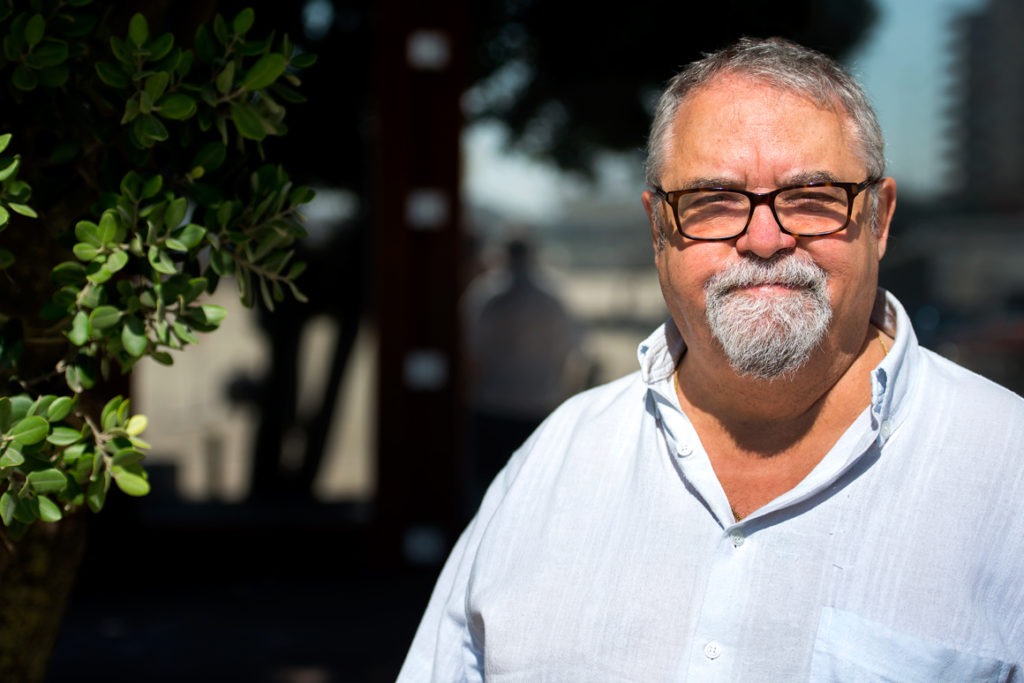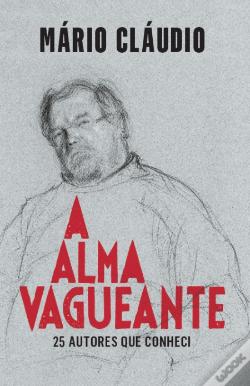 Writer Mário Cláudio is the winner of the Grand Prize for Literature Portuguese Writers Association/Loulé City Council – Crónica e Dispersos Literários 2018.
Writer Mário Cláudio is the winner of the Grand Prize for Literature Portuguese Writers Association/Loulé City Council – Crónica e Dispersos Literários 2018.
In this 3rd edition of the Chronicle and Literary Disperses Award, instituted by the two entities, works released in 2016 and 2017 competed, exceptionally.
A jury consisting of Cândido Oliveira Martins, Carina Infante do Carmo and Carlos Albino Guerreiro unanimously decided to award the Grand Prize for Chronicle and Literary Dispersed APE/CM de Loulé to the book “A Alma Vagueante”, by Mário Cláudio (Minotauro).
The jury highlighted “the brilliant quality of his writing; the enormous power of suggestion of the outlined profiles; and the uniqueness of being chronicles about personalities deserving of homage, as relevant creators of Portuguese culture».
The monetary value of this Grand Prize is, for the distinguished author, ten thousand euros.
The award ceremony will take place on Municipality Day, on the morning of the 10th of May, at the Salão Nobre of the Paços do Concelho de Loulé.
This Grand Prix distinguished, in 2016, José Tolentino Mendonça and, in 2017, Rui Cardoso Martins.
Who is the 2018 winner?
 Portuguese writer, real name Rui Manuel Pinto Barbot Costa, born on November 6, 1941, in Porto, holds a degree in Law from the University of Coimbra, where he also graduated as a librarian-archivist. IT'S master of arts in Library Science and Documentary Science from University College London.
Portuguese writer, real name Rui Manuel Pinto Barbot Costa, born on November 6, 1941, in Porto, holds a degree in Law from the University of Coimbra, where he also graduated as a librarian-archivist. IT'S master of arts in Library Science and Documentary Science from University College London.
He revealed himself as a poet with the volume “Ciclo de Cypris” (1969). Translator of authors such as William Beckford, Odysseus Elytis, Nikos Gatsos and Virginia Woolf, he was, however, as a fictionist who most asserted himself.
He published under his own name, since “Mário Cláudio” is a pseudonym, a Study of Illiteracy in Portugal, a work that brings together his master's thesis and a paper presented at the 6th Meeting of Portuguese Librarians, Archivists and Documentalists, in 1978.
Collaborator in various periodicals, such as Loreto 13, Colóquio/Letras, Diário de Lisboa, Vértice, Jornal de Letras Artes e Ideias, O Jornal, among others, was considered by critics, since the publication of works such as “Um Verão Assim”, an author for whom verse and prose are interchangeable modalities, with common characteristics such as opacity, musicality and syntactic rupture, subverting the linearity of reading through writing constructed as a “spiral labyrinth”.
Mário Cláudio's work presents the facet of a researcher and bibliophile who, finding continuity in his professional activity, scholarly inscribes each book in a cultural and literary heritage, Portuguese or universal.
It could be said that his writing, whether novel or in collections of short narratives (Itinerários, 1993), works as a mirror that returns to each period its image, seen through a face or a place, in which the author himself reflects, and this without the concern of any kind of realism, but in a diffuse and composite whole, capable of evoking the sense or tone of an era that still contributes to form the present era.
Mário Cláudio received, in 1985, the Grand Prize for Novel and Novel from the Portuguese Writers Association for “Amadeo” (1984), the first novel in a group later entitled “Trilogia da Mão” (1993); in 2001 he received the soap opera prize from the same association for the book “A Cidade no Bolso” and, in December 2004, he was distinguished with the Pessoa Prize.
In addition to the works already mentioned, he was also authored “Guilhermina” (1986), “A Quinta das Virtudes”, (1991), “Tocata for Dois Clarins” (1992), “O Pórtico da Glória” (1997), “ Pilgrimage of Barnabas das Indias” (1998), “Ursamaior” (2000), “Orion” (2003), “Amadeu” (2003), “Gémeos” (2004) and “Triunfo do Amor Português” (2004).
The author has also published works in the area of poetry (such as “Ciclo de Cypris”, 1969, “Terra Sigillata”, 1982, and “Dois Equinocios”, 1996), essays (“For the Study of Literacy and Reluctance à Leia em Portugal”, from 1979, among others), from theater (for example, “O Estranho Caso do Trapezista Azul”, from 1999) and from youth literature (“A Bruxa, o Poeta eo Anjo”, from 1996) .


















Comments